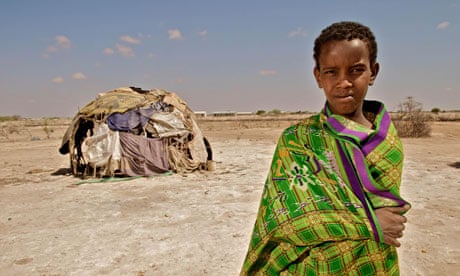Nairobi is a good place to be an international correspondent. There are regular flights to the nearest genocide, and there are green lawns, tennis courts, good fawning service. You can get pork belly, and you can hire an OK pastry chef called Elijah (surname forgotten) to work in your kitchen for $300 a month.
If you work for one of the major newspapers, or television and radio services, chances are you live in Nairobi or Johannesburg. To make your work easier, you need, in your phone, the numbers of the country directors of every European aid agency: Oxfam, Save the Children. To find these numbers is not difficult: chances are these guys are your neighbours, your tennis partners.
If your spouse has arrived in Kenya and does not have a job, soon he or she will be fully networked and earning lots of pounds/euros/dollars, making sure the babies of Africa are safe, making sure the animals of Africa are kept safely away from Africans, making sure the African woman is kept well-shielded from the African man, making sure the genitals of Africa are swabbed, rubbered and raised into a place called awareness. Because you are a good person, who believes in multiculturalism, and that politicians are evil.
You are a child of the human rights age. A post-cold war child. In this age, which has no ideology, brown and black places are flat issues: how far from gay freedom is (fill in African country)? In this age, all local knowledge is carried by aid organisations. These organisations speak human rights, and because they do so, we know that they are good, objective and truthful. So, if a foreign correspondent needs to know what exactly is going on in Sudan, their weekly lunch with the Oxfamy guy will identify the most urgent issues.
Since, in your world, big history died with the Berlin wall, there is only little history left to report on Africa. Little history is full of many small flares of wonderfulness and many small flares of utter horribleness that occasionally rise in a flat and benign world: a little boy in Malawi made his own radio. An actual radio. He has a good smile. Osama bin Laden or one of his peeps bombed trains, planes and innocents – and you slept safe that night, all of the flat world slept safe that night.
There are five or six places that have not been fully pacified inside the vision of the world as run by the victors of the cold war: North Korea, Gaddafi (that has been dealt with), Somalia, Afghanistan, the women of Africa, and the poor poor people of China, slaving away under the most terrible conditions doing confusing things like refusing to evolve into Europe. Big places where history is still alive – like Russia, China, the Middle East – are to be feared and demonised. Why can't the Egyptians vote for a nice, safe, British-trained economist who once worked for the World Bank?
In the 80s, your newspaper probably had correspondents in many African countries. Now there are two: west Africa, and east Africa (Horn). Or one: Africa, based in Johannesburg. In the 80s, the world's future was not secure. Some African countries were on one side of power, some on the other side of power. They could not be ignored. As nobody had won, the big powers had to fight for the hearts, minds and minerals of all. All an African president needed to do was suggest that he was crossing over and have love and Smarties dropped over his house by Nato planes. Margaret Thatcher visited Zimbabwe. Robert loved her.
In 1991, Africa ceased to exist. The world was safe, and the winners could now concentrate on being caring, speaking in aid language bullet points.
If there was a new map, Africa would be divided into three: 1) Tiny flares of horribleness – Mugabe, undemocratic, war, Somalia, Congo; 2) Tiny flares of wonderfulness – Mandela, World Cup, safari. Baby4Africa! A little NGO that does amazing things with black babies who squirm happily in white saviours' hands because they were saved from an African war. My favourites are clitoraid.com and Knickers 4 Africa – which collects used panties for African women; 3) The rest. Let's call this the "vast grassroots". This part of Africa is run by nameless warlords. When the warlords fall, these places are run by grassroots organisations that are funded by the EU and provide a good place to send gap year kids to help and see giraffes at the same time. Grassroots Africa is good for backpacking because it is the real Africa (no AK47s to bother you, no German package tourists). The vast grassroots exists to sit and wait for agents of sustainability (Europeans) to come and empower them.
But what cannot be said is that history came surging to the present. Market capitalism is shaking, and all of a sudden the vast grassroots has oil and copper, and willing, driven and ambitious hands. The continent is ripe for new partnerships, new capital – new strong handshakes. China is no angel – but we are, for them, an essential part of the way the world will be. They are in it for their future, not ours; we are in with them for our future. We are real to them, and we have a platform to talk.
It is not a surprise that, in these days, there is a vast and growing new middle class across the continent: the British, American and European media houses have lost us. Our own are booming, and we are finding deals with CCTV (China) and al-Jazeera. We fly Emirates and Kenya Airways. We make deals with those who see a common and vibrant future being a platform for engagement.
